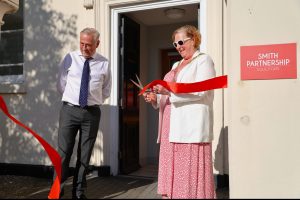Unemployment in the West Midlands rises

UNEMPLOYMENT in the West Midlands rose during the last quarter, bucking the national trend but not surprising business leaders in the region.
Latest figures released by the Office for National Statistics show unemployment rose by 13,000 (0.4%) in the quarter July to September, compared with the three months between April and June.
The total number of unemployed in the region now stands at 233,000 (8.7%). The UK average is 7.7% with the total number of unemployed unchanged at 2.45m.
Despite the rise, the figures are still better than this time last year when unemployment was 35,000 (1.3%) higher than now.
The manufacturing and construction sectors – hardest hit during the recession – are also improved on last year’s lows. However, in what might be a sign of things to come, unemployment in the public administration sector – which covers education, health and social services – worsened by 80% (29,000 compared with 16,000) on the same quarter last year, suggesting the public sector cutbacks are beginning to be felt.
Christine Braddock, new president of Birmingham Chamber of Commerce (BCC), said the rise was not unexpected in the current economic climate.
“We should take advantage of opportunities such as self employment. Job growth in Birmingham will only worsen,” she said.
“The figures show a rise in seasonal and part time jobs which is to be expected at this time of year but we would encourage people to establish their own businesses where possible.
“There is a huge potential for job creation in the private sector due to interest rates staying lower for longer and because the public sector are outsourcing.”
There was better news in Coventry and Warwickshire, where unemployment bucked the regional trend.
Alan Durham, director of policy at the Coventry and Warwickshire Chamber of Commerce, said: “The fall in unemployment across Coventry and Warwickshire is welcome news. We have to be extremely careful not to get too carried away even though this is positive.
“The cuts announced in the Government’s Comprehensive Spending Review have not yet had the impact on jobs that we know they ultimately will.”
He said as was evident from the collapse of building firm Rok, industries were still struggling to get over the effects of the recession.
“We have to look ahead to the next six months to two years to see where new jobs can be created and what help can be given to firms to generate new employment opportunities.
“If the private sector is going to plug the gap when it comes to employment, it needs all the support it can get and that begins with reducing the burden of red tape that comes with taking on staff,” he said.









